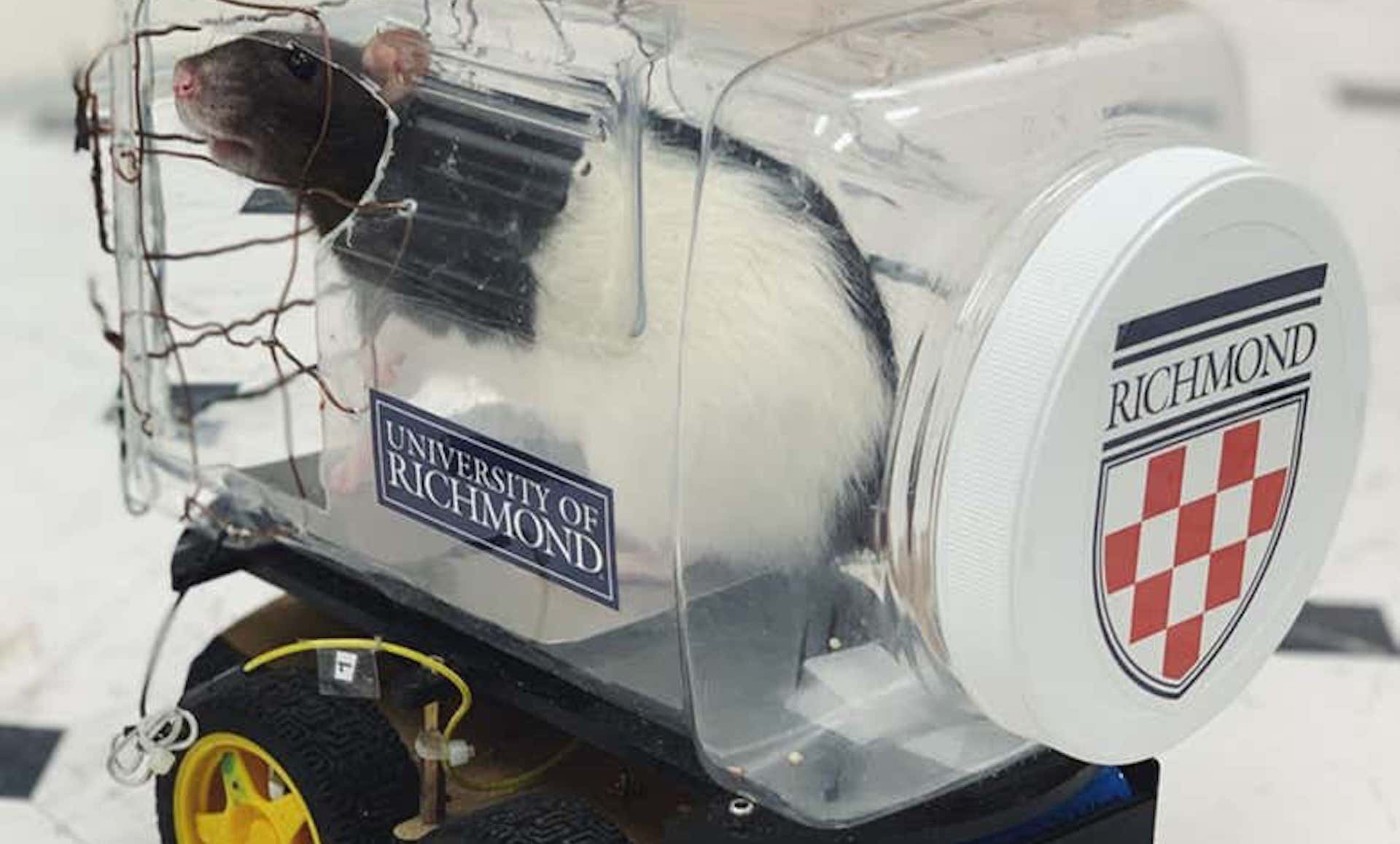

Welcome to the future, where rats driving tiny cars like Stuart Little is finally a thing. Wait, what?
Scientists have trained rats to drive tiny rat-cars to get food, New Scientist reports. It’s a more sophisticated task than a rodent’s usual maze or object recognition, which suggests that rats’ brains might be more capable than we previously understood.
University of Richmond researcher Kelly Lambert wanted to discover whether rats could perform the more complex task of driving to retrieve their food, and as you can see in the video below, it was successful.
Eleven male rats and six female rats were put in rectangular areas up to about 43 square feet in size. A Froot Loop was dangled as the reward at certain places researchers wanted them to travel, and these rewards were gradually moved further and further away to get the rats to do increasingly more difficult drives.

The car was made out of a clear plastic food container mounted on wheels. When a rat stood on the aluminum floor of the car held onto the car’s copper steering bars, it completed an electrical circuit that powered the car’s drive wheels.
The rats could even steer the car based on where they put their paws on the copper bar. Moving their paws right, left or to the middle steered it in different directions.
Rats that learned to drive appeared to relax, which researchers discovered by measuring dehydroepiandrosterone (a hormone that counteracts stress) and cortisol (a hormone that marks stress) in the rats’ feces, the report says. They discovered that the ratio of dehydroepiandrosterone to cortisol improved as the rats learned how to drive. They also found that rats that drove the cars were less stressed (showing lower dehydroepiandrosterone levels) than rats who had merely been driven around as passengers.
All these dung measurements could be some pretty important crap that builds upon Lambert’s previous research that demonstrates how rats become less stressed after mastering difficult tasks.
“In humans, we call this self-efficacy or agency,” Lambert told New Scientist. The idea that honing a new skill gives a person satisfaction is well established, but the idea that it happens in rats is a new one, demonstrating the same kind of neuroplasticity that allows rats to respond to more difficult challenges that humans have.
“I do believe that rats are smarter than most people perceive them to be, and that most animals are smarter in unique ways than we think,” Lambert added.
Lambert explained that this discovery could be used in important research, specifically into how learning new skills relieves stress, interacts with psychiatric or neurological conditions, or affects mental capabilities. It could be a major help in research on depression and Parkinson’s disease, for example.
What’s left is learning why learning to drive reduces stress, how rats learn the skill and which brain areas are affected, New Scientist notes. Maybe we shouldn’t fear the rise of our rodent overlords just yet—that’s still a significant amount of research to go, and no one’s taught a rat how to drive a stick shift yet. You may want to lock up your one-pedal Nissan Leaf, however.